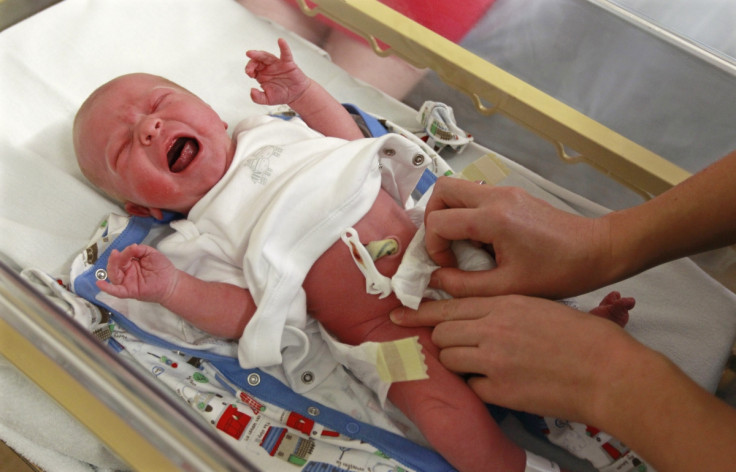NHS: Babies born at weekends found to have higher risk of dying

Babies born in NHS hospitals have a higher risk of dying at the weekends than those born on weekdays, researchers have found. The study was carried out by examining 1.3 million births between 1 April, 2010 and 31 March, 2012.
According to the study, the perinatal mortality rate was 7.3 per 1,000 babies delivered at weekends, 0.9 per 1,000 higher than for weekdays. The study was conducted by Imperial College London's department of primary care and public health and published in The British Medical Journal.
While researchers found the lowest death rate on Tuesdays, they said there could be 770 more perinatal deaths and 470 maternal infections per year if performance factors which were taken into account were consistent across the week. The research shows a noticeable difference between weekend and weekdays deaths in newborns, which raises questions over the standard of care in hospitals across Britain. However, "no consistent association between outcomes and staffing was identified" by the researchers.
Performance factors such as day of admission and delivery were taken into account, while adjustments were made for mixed case factors such as gestational age, birth weight and maternal age. Staffing factors were also investigated by the researchers.
A study co-written by England medical director, Sir Bruce Keogh, which was published in September had also found that people admitted during weekends had a higher risk of dying within 30 days with 11,000 patients in a year dying because of shortage of staff at hospitals during weekends.
This study prompted Health Secretary Jeremy Hunt to call for a seven-day health service policy. However, medical professionals and junior doctors are not in favour of the new policy. Junior doctors have called for a three-day strike in December in protest against contract changes. This is the first time in NHS history that medics and doctors would be on strike for three days.
© Copyright IBTimes 2024. All rights reserved.





